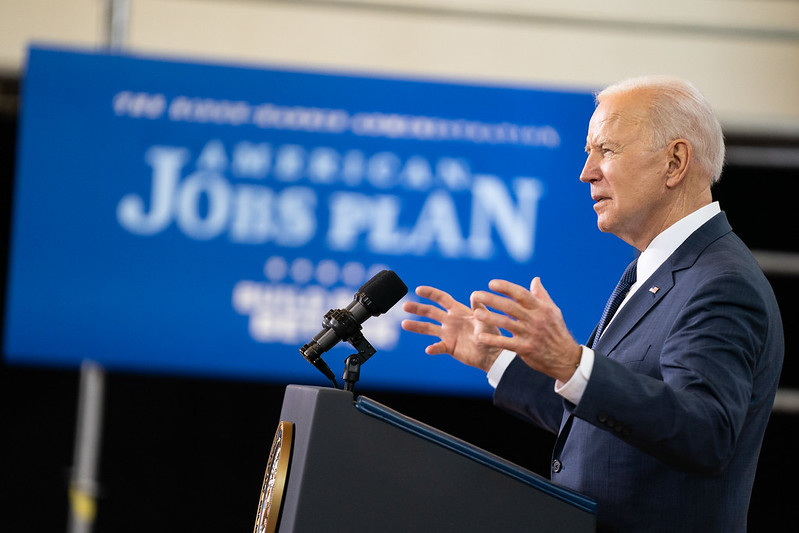
The longer inflation persists, the further up the income scale it affects people. As inflation set in during Joe Biden’s presidency, poor Americans were the first hit. Now their wealthier neighbors are also finding it hard to keep up with Bidenflation. The pressure on their finances is influencing voters at all income levels. The Wall Street Journal’s John McCormick and Bryan Mena report:
The economic pain from the highest inflation in four decades is reaching across all income groups and casting a broad shadow over Democrats’ prospects for keeping control of Congress in Tuesday’s midterm elections, the latest Wall Street Journal poll shows.
Lower-income voters are feeling inflation’s impact the most, but the survey shows the burden of rising prices is also weighing more heavily than earlier this year even on wealthier households. Among those with annual household incomes of more than $150,000 up to $200,000, 26% say rising prices are creating major financial strains, nearly double from the level in March.
Households earning more than $60,000 up to $100,000 a year—a segment that includes the nation’s 2021 median household income of about $70,800—have seen the biggest movement in the Journal’s 2022 polling for the proportion reporting major financial strains because of inflation. A quarter of those in that income group expressed that level of burden in March, before growing to 39% late last month.
Independent voters, a critical segment in close elections, are more likely than Democrats or Republicans to say inflation is creating serious stress in their lives. That could put added electoral pressure on Democrats who now control the White House, Senate and House.
Among all registered voters, 36% say rising prices are creating significant financial stress. Just 22% of Democrats report that level of strain, compared with 46% of Republicans and 49% of independents.
People with the lowest incomes are the most likely to report economic suffering related to inflation, with 54% of those having annual household incomes of $60,000 or less saying rising prices are creating major problems for them. That is up from 47% in the Journal’s March poll.
Those with annual household incomes of $60,000 or less are almost evenly split between the two parties when it comes to congressional candidates they have already voted for or plan to support. Those earning over $150,000 up to $200,000 favor Democrats over Republicans, 49% to 44%, while those above $200,000 preferred Republicans over Democrats, 56% to 38%.
Wayne Mabry, a 63-year-old retired bus driver in Salem, Ore., said he uses a calculator when he goes grocery shopping, buys cheaper chicken than pricier beef and avoids driving as much as possible because of gas prices. While he traditionally has considered himself a Democrat, Mr. Mabry said he recently voted for his state’s Republican candidate for governor, Christine Drazan, because of rising prices and homelessness.
Action Line: Make sure to vote tomorrow. Your finances may depend on it. In the meantime, click here to sign up for my free monthly Survive & Thrive letter.



